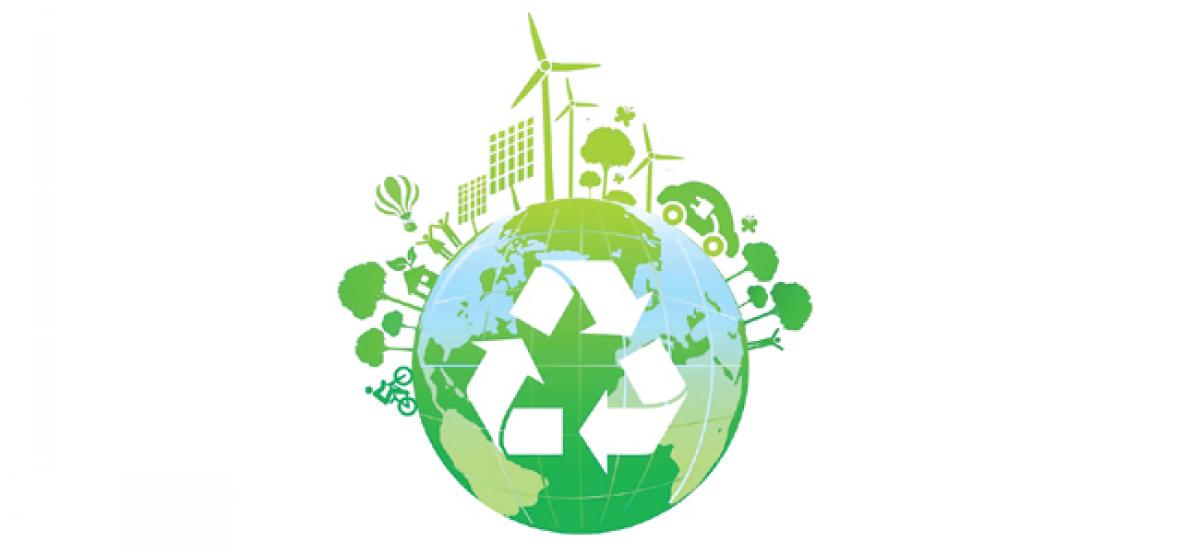Live
- Akshaya Tritiya 2024: Date and Significance
- Kamada Ekadashi 2024: Date, Auspicious Timings And Significance
- Aamir Khan’s son Junaid wraps up filming for his second movie
- Vijay Sethupathi’s heartwarming gesture wins netizens’ hearts
- Excitement builds as Nabha Natesh and Priyadarshi paired up
- Gurinder Chadha all set to make a comeback to big screen
- Palle Sindhura Reddy flays YS Jagan during election campaign in Puttaparthi
- KK Raju files nomination amid public celebrations and predicts victory with 45k vote majority
- Vijayawada Central Candidate Vellampally Srinivas Campaigns in 28th Division Railway Colony
- DCA busts three quack clinics in Hyd, Jangaon and Mahabubnagar
Just In

Home to a harmonious blend of Vietnamese, Chinese and Japanese influences, Hoi An is located about 30 km south of the coastal city of Da Nang in Quang Nam province With over 20 million tourists visiting per year, this port city a UNESCO World Heritage Site produces approximately 27,000 tonnes of urban waste per year
Home to a harmonious blend of Vietnamese, Chinese and Japanese influences, Hoi An is located about 30 km south of the coastal city of Da Nang in Quang Nam province. With over 20 million tourists visiting per year, this port city a UNESCO World Heritage Site produces approximately 27,000 tonnes of urban waste per year.
Most of the solid waste here, the country's first "eco-city" known for its pagodas, temples, ancient wells and tombs was once finding its way into the ocean, streams and landfills, threatening the environment and the health of communities.
Now, household and tourism industry waste is sorted into three categories recyclable, biodegradable and persistent and disposed of under a pilot evolved by UN agencies with the involvement of locals, mainly women.
Result: Scientific waste disposal is not only enhancing community income and employment, but is also addressing local environmental and climate challenges while at the same time taking into account business interests.
The credit of setting up the long-term waste management system that fosters sustainable development goes to a Global Environment Facility (GEF) Small Grants Programme, which came into existence in Hoi An in 2010. It basically aims at innovation and advocacy.
Biodegradable waste is composted at the household level and then used by local farmers for sustainable agriculture. Plastic, metal, and other recyclable waste is collected and sold to recycling facilities, while persistent waste is disposed of by the local government.
A revolving credit scheme gave loans to members of the groups and allowed the waste management programme to become viable. Minh Hang, an octogenarian woman living in Hoi An, whose population density is six times higher than the national average, says the waste management programme helps her family get jobs.
She says, “My entire family depends solely on waste collection and its disposal.it helps us earn a livelihood and also saves the
environment." According to the United Nations Industrial Development Organisation (UNIDO), the Hoi An eco-town development, which is funded under the UN's One Plan Fund, envisions active participation by people's committees to implement green industry practices in small and medium enterprises, particularly those in the tourism, crafts and related sectors.
The local civic authorities were advised to arrange solid waste collection plans and promote gardening in the city by involving business houses. United Nations Development Programme (UNDP) President Achim Steiner, who is the Vice-Chair of United Nations Sustainable Development Group, shared: "I think it takes the (local) leadership first.
The private sector needs to be prepared to lead in this (in finding solutions to climate change) field also." “It (private sector) can't be a passive player and they can't wait for the government to solve the problem. So the first thing we in the UN family, not only in the UNDP, is to look for the leaders in the private sector because they are part of the change that we are calling for."

© 2024 Hyderabad Media House Limited/The Hans India. All rights reserved. Powered by hocalwire.com







